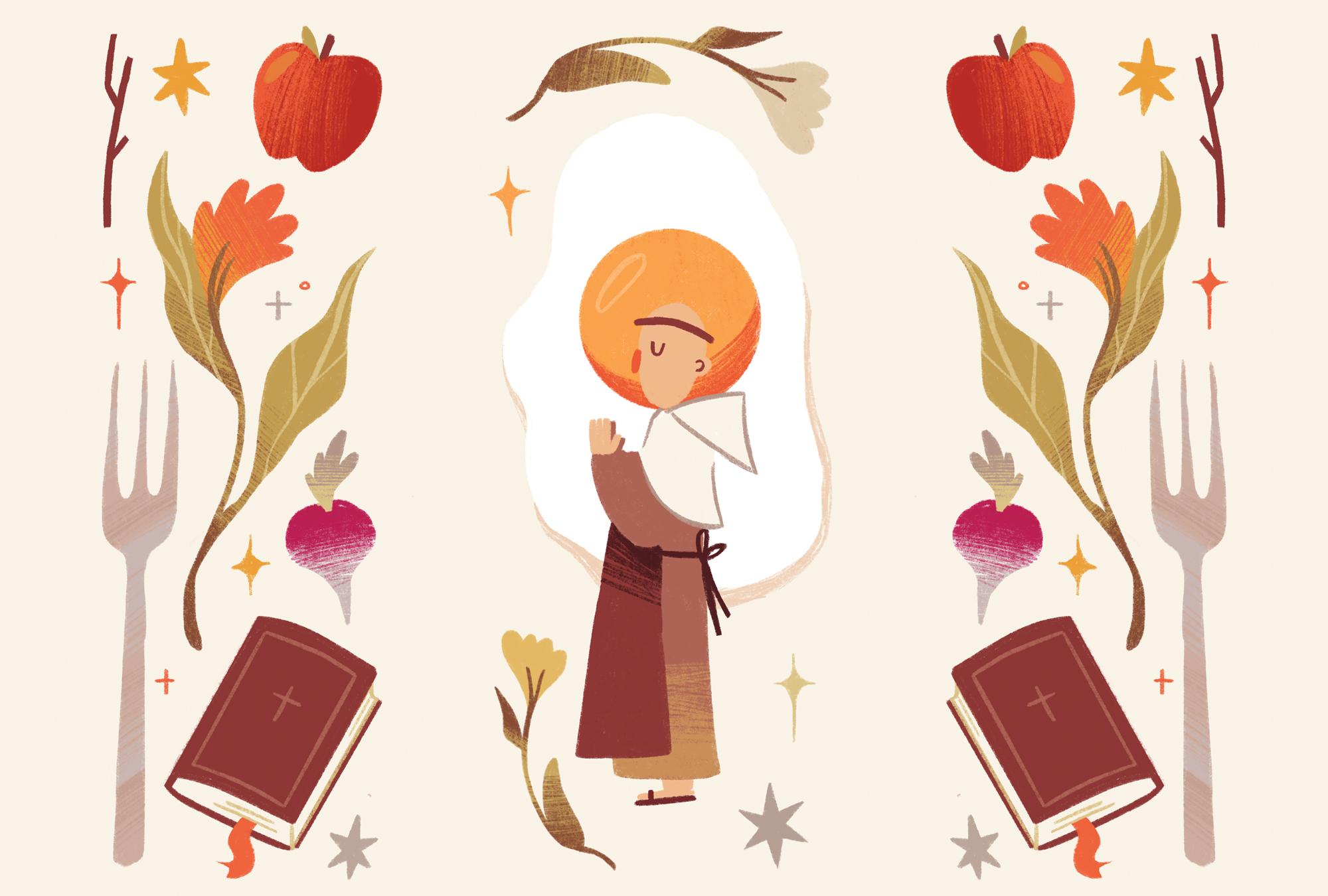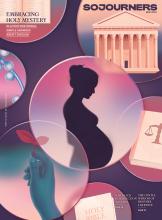Share As A Gift
Share a paywall-free link to this article.
This feature is only available for subscribers.
Start your subscription for as low as $4.95. Already a subscriber?

Illustration by Ryan McQuade
CHRISTIAN MYSTICS HAVE a definite dramatic streak. Their transformative encounters with God are full of divine revelations (Julian of Norwich), ecstatic visions (Teresa of Ávila), stigmata (Francis of Assisi), erotic imagery (John of the Cross), and all manner of artistic compositions (here’s to you, Hildegard of Bingen).
But then there’s Brother Lawrence who — if he is known at all — is known for experiencing God’s presence as he washed dishes, cooked eggs, or did other monotonous chores that came with life in a 17th-century French monastery.
Born Nicolas Herman, he emerged from one of Europe’s deadliest religious wars a disabled veteran. Haunted by his past actions and convinced he was eternally condemned, he failed as a hermit (too much time alone with his thoughts), then as a footman (“a clumsy oaf who broke everything,” he recalled), before eventually joining the lay brothers of the Order of the Discalced Carmelites in Paris in 1640. Yet Brother Lawrence’s anxiety persisted. When he tried to pray, he spent the whole time “rejecting thoughts and then tumbling back into these same thoughts.” Eventually, he gave up all his spiritual exercises and focused on becoming aware of God’s presence as he did his assigned work in the monastery’s kitchen. What he experienced wasn’t a celestial vision, but what he had sought all along: God’s peace.
“We go to such great lengths, trying to remain in the presence of God by so many methods,” he told a friend who posthumously published Lawrence’s modest writings and letters. “Isn’t it much shorter and more direct to do everything for the love of God?”
Carmen Acevedo Butcher, an award-winning translator of mystical and classic Christian texts, was drawn to Brother Lawrence’s gentle practice. Acevedo Butcher herself grew up saddled with severe “self-loathing” and anxiety from a childhood shaped by trauma, hellfire preaching, and the strain of being “a brown girl in a white society.” But in Lawrence’s writing she finds someone who experienced real Love amid real pain.
In Practice of the Presence, Acevedo Butcher’s new English translation of Brother Lawrence, she emphasizes his embodied joy and his “original welcoming spirit,” which she sees in his frequent use of tout le monde — “for everybody.” Drawing on Lawrence’s deeply trinitarian theology, Acevedo Butcher uses they/them pronouns for God, a move she hopes will communicate Lawrence’s kind, inclusive understanding of Love to a wide audience. Acevedo Butcher spoke with Sojourners’ Betsy Shirley about translation, mysticism, and how Brother Lawrence’s practice connects to the work of social justice today.

Got something to say about what you're reading? We value your feedback!